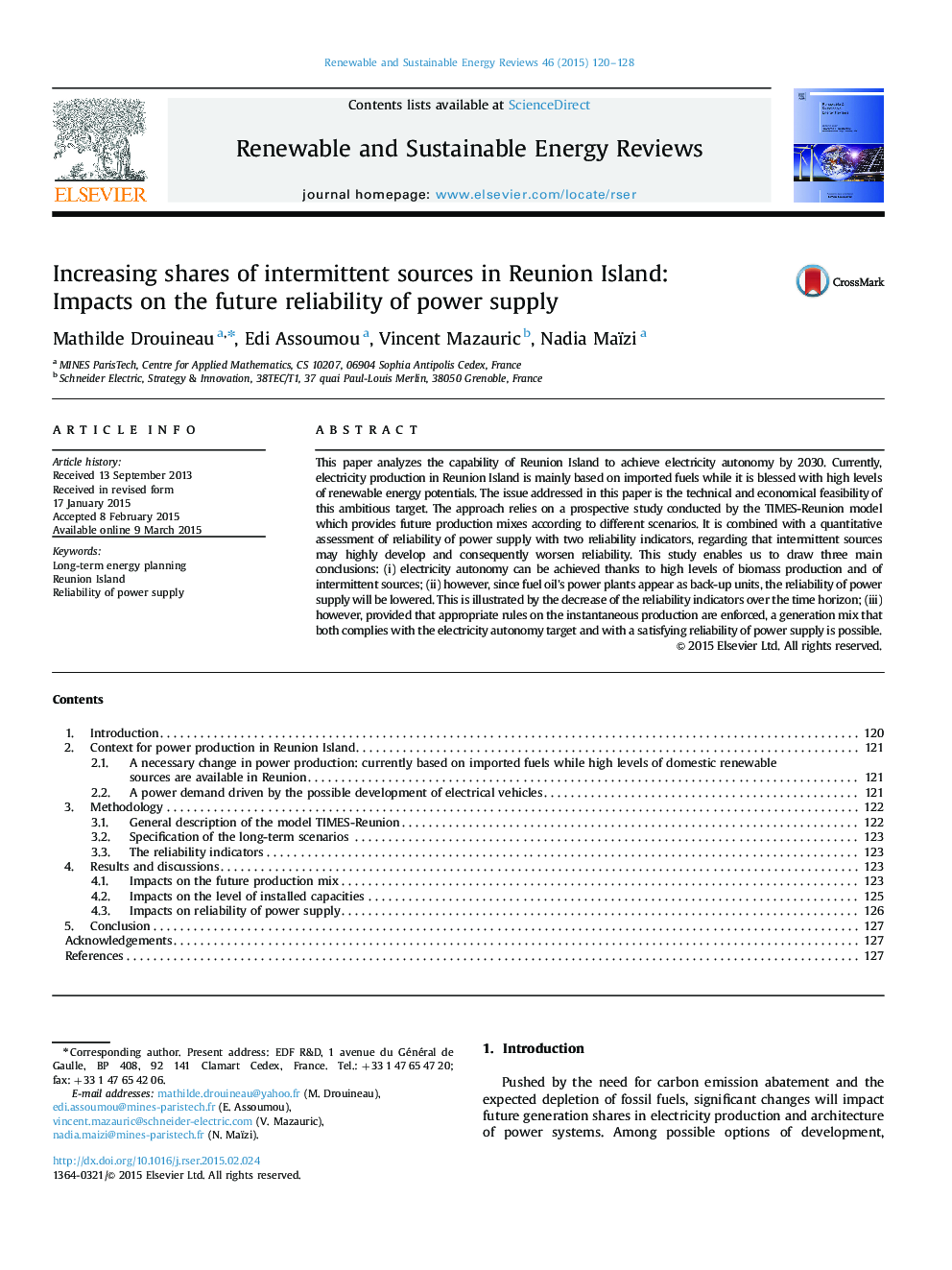| Article ID | Journal | Published Year | Pages | File Type |
|---|---|---|---|---|
| 1750107 | Renewable and Sustainable Energy Reviews | 2015 | 9 Pages |
This paper analyzes the capability of Reunion Island to achieve electricity autonomy by 2030. Currently, electricity production in Reunion Island is mainly based on imported fuels while it is blessed with high levels of renewable energy potentials. The issue addressed in this paper is the technical and economical feasibility of this ambitious target. The approach relies on a prospective study conducted by the TIMES-Reunion model which provides future production mixes according to different scenarios. It is combined with a quantitative assessment of reliability of power supply with two reliability indicators, regarding that intermittent sources may highly develop and consequently worsen reliability. This study enables us to draw three main conclusions: (i) electricity autonomy can be achieved thanks to high levels of biomass production and of intermittent sources; (ii) however, since fuel oil׳s power plants appear as back-up units, the reliability of power supply will be lowered. This is illustrated by the decrease of the reliability indicators over the time horizon; (iii) however, provided that appropriate rules on the instantaneous production are enforced, a generation mix that both complies with the electricity autonomy target and with a satisfying reliability of power supply is possible.
